Filter by
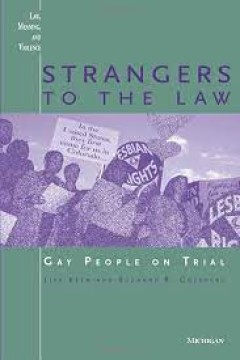
Strangers to the Law Gay People on Trial
In 1992, the voters of Colorado passed a ballot initiative amending the state constitution to prevent the state or any local government from adopting any law or policy that protected a person with a homosexual, lesbian, or bisexual orientation from discrimination. This amendment was immediately challenged in the courts as a denial of equal protection of the laws under the United States Constitu…
- Edition
- -
- ISBN/ISSN
- 9780472086450
- Collation
- -
- Series Title
- -
- Call Number
- -
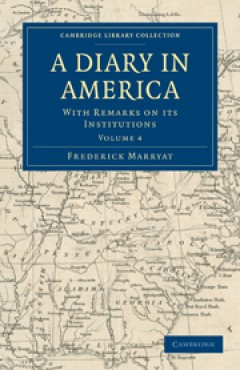
A Diary in America With Remarks on its Institutions
Captain Frederick Marryat (1792–1848) was a distinguished naval officer, today best remembered as a novelist (particularly of stories for children), often drawing on his own experiences. He also edited a radical journal, and wrote non-fiction, including an attack on press-gangs, which damaged his career. He spent 1837 and 1838 travelling in North America, publishing his impressions in this un…
- Edition
- -
- ISBN/ISSN
- 9781139058704
- Collation
- -
- Series Title
- Cambridge Library Collection - North American History
- Call Number
- -
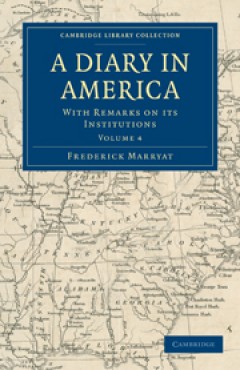
A Diary in America With Remarks on its Institutions
Captain Frederick Marryat (1792–1848) was a distinguished naval officer, today best remembered as a novelist (particularly of stories for children), often drawing on his own experiences. He also edited a radical journal, and wrote non-fiction, including an attack on press-gangs, which damaged his career. He spent 1837 and 1838 travelling in North America, publishing his impressions in this un…
- Edition
- -
- ISBN/ISSN
- 9781139058711
- Collation
- -
- Series Title
- Cambridge Library Collection - North American History
- Call Number
- -
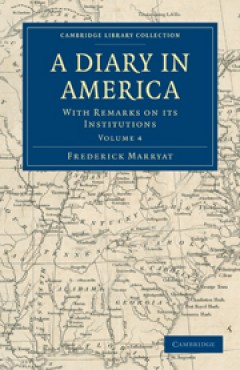
A Diary in America With Remarks on its Institutions
Captain Frederick Marryat (1792–1848) was a distinguished naval officer, today best remembered as a novelist (particularly of stories for children), often drawing on his own experiences. He also edited a radical journal, and wrote non-fiction, including an attack on press-gangs, which damaged his career. He spent 1837 and 1838 travelling in North America, publishing his impressions in this un…
- Edition
- -
- ISBN/ISSN
- 9781139058728
- Collation
- -
- Series Title
- Cambridge Library Collection - North American History
- Call Number
- -
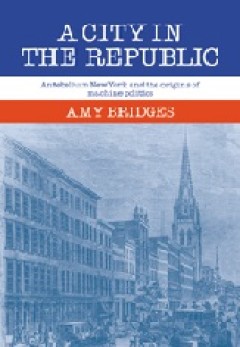
A City in the Republic: Antebellum New York and the Origins of Machine Politics
This study of the emergence of machine politics in New York City during the antebellum years sheds light on the origins of a system that was the characteristic form of government in United States cities from the mid-nineteenth until well into the twentieth century. In contrast to previous explanations that have found the origins of machine politics in immigrant culture and ethnic conflict, Prof…
- Edition
- -
- ISBN/ISSN
- 9780511895920
- Collation
- -
- Series Title
- -
- Call Number
- -

A Description of Patagonia, and the Adjoining Parts of South America
Thomas Falkner (1707–84), one-time pupil of both Richard Mead and Isaac Newton, was an English Jesuit missionary who lived for nearly forty years in South America until 1767, when he returned to England following the Jesuits' expulsion from Córdoba. Originally published in 1774 in the hope that it 'might be of some public utility, and might also afford some amusement to the curious', this is…
- Edition
- -
- ISBN/ISSN
- 9781139775472
- Collation
- -
- Series Title
- Cambridge Library Collection - Latin American Studies
- Call Number
- -
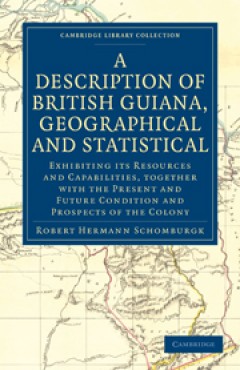
A Description of British Guiana, Geographical and Statistical
Sir Robert Hermann Schomburgk (1804–1865) was a German-born surveyor and traveller. In 1835–1839 he explored British Guiana for the Royal Geographical Society. In 1840 he was appointed to define its boundaries with Brazil, as Brazilian encroachments were wiping out native tribes. His report to the Colonial Office was published as A Description of British Guiana, Geographical and Statistical…
- Edition
- -
- ISBN/ISSN
- 9780511783586
- Collation
- -
- Series Title
- Cambridge Library Collection - Latin American Studies
- Call Number
- -
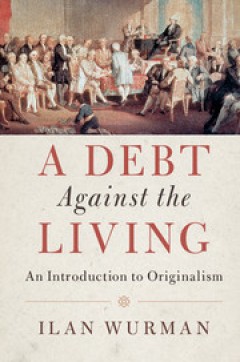
A Debt Against the Living
Thomas Jefferson famously wrote that the earth belongs to the living. His letter to James Madison is often quoted for the proposition that we should not be bound to the 'dead hand of the past', suggesting that the Constitution should instead be interpreted as a living, breathing document. Less well-known is Madison's response, in which he said the improvements made by the dead - including the U…
- Edition
- -
- ISBN/ISSN
- 9781108304221
- Collation
- 9781108304221
- Series Title
- -
- Call Number
- -

The Politics, Practices, and Possibilities of Migrant Children Schools in Con…
This book examines the dynamics surrounding the education of children in the unofficial schools in China’s urban migrant communities. This ethnographic study focuses on both the complex structural factors impacting the education of children attending unofficial migrant children schools and the personal experiences of individuals working within these communities. As the book illustrates in car…
- Edition
- -
- ISBN/ISSN
- 978-1-137-50899-7
- Collation
- XVII, 185
- Series Title
- Palgrave Studies on Chinese Education in a Global Perspective
- Call Number
- -
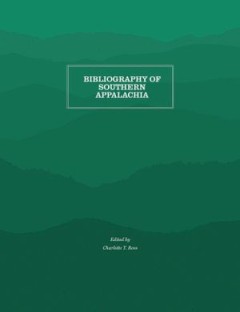
Bibliography of Southern Appalachia
This monograph represents a massive effort to assemble printed works of regional materials held by Appalachian Consortium members at various institutions in the Appalachia region during the mid-1970s. The five libraries contributing to the effort formed a committee to formalize and catalogue their research which resulted in the 13,000 entry bibliographic compendium which had grown from a small,…
- Edition
- -
- ISBN/ISSN
- 9781469642154
- Collation
- -
- Series Title
- -
- Call Number
- 010 BIB
 Computer Science, Information & General Works
Computer Science, Information & General Works  Philosophy & Psychology
Philosophy & Psychology  Religion
Religion  Social Sciences
Social Sciences  Language
Language  Pure Science
Pure Science  Applied Sciences
Applied Sciences  Art & Recreation
Art & Recreation  Literature
Literature  History & Geography
History & Geography